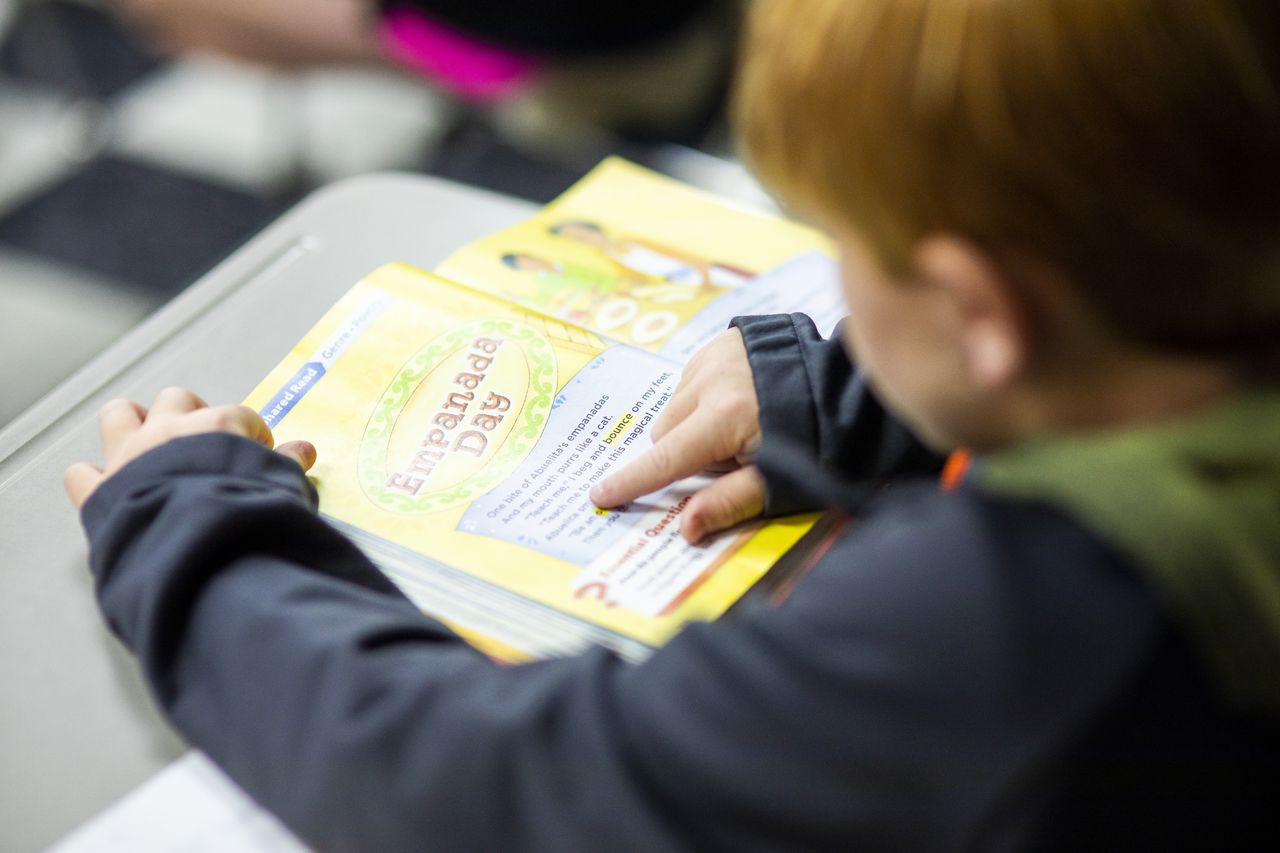Birmingham program aims to increase student reading skills, fight crime
Want more state education news? Sign up for The Alabama Education Lab’s free, weekly newsletter, Ed Chat.
Two Birmingham-area schools are among recipients of a $107,000 grant-funded effort to tackle long-term crime prevention in the metro area.
Volunteers and community advocates are working with Better Basics, an organization founded in 1993, to eradicate illiteracy and help students achieve job and career options. The program also comes amid efforts to address crime rates, and the long-term effects of violence on children.
According to the Department of Justice, there is a link between high crime rates and illiteracy. Better Basics aims to disrupt relying on criminal activities as probable means of financial survival by providing basic levels of academic competences and credentials.
“Low literacy skills are one of the most significant common factors for individuals in custody in the United States,” said Kristi Bradford, the executive director of Better Basics. “Across the country, 85% of juveniles and 60% of adults within the criminal justice system are functionally illiterate.”
Better Basics recently was awarded $28,117 in grant funding. The program partners with classroom teachers to provide needed intervention in reading and math for students in grades K-4 who are performing below grade level. Teachers who are often retired are equipped to deliver lessons to students in small groups.
Central Park Elementary School in Fairfield and Martha Gaskins Elementary School in Center Point are the two schools selected to receive the benefits of this grant. Both schools are respectively stationed near the east and west precincts and were chosen because these locations make up for the largest amounts of the crimes that happen in Birmingham.
“Combined, total crime rates in the east and west precinct areas make up 55% of all crimes committed in the city of Birmingham,” Bradford said.
The funding comes amid other grant support for efforts to lessen and prevent crime rates in Birmingham, which were approved by Gov. Kay Ivey this fall.
“These grants offer another tool to help law enforcement agencies and community organizations,” her office said.
Jeremy Sherer, the U.S. Assistant Attorney for the northern district in Birmingham and overseer of Project Safe Neighborhoods, keeps a proactive attitude in support of anti-crime efforts in Birmingham.
“Our office would always rather prevent a crime than prosecute a crime,” Sherer said.
Claudine Land, a second year volunteer for the program, describes a typical Better Basics volunteer day: the volunteers ensure communication between teachers, administration and parents. Making sure the curriculum is translated at a level of understanding for all is also important. She loves seeing the excitement on the faces of children once they grasp the understanding of concepts.
“In addition, knowing the children worked hard and accomplished the very skill that they once lacked is rewarding,” said Land. “Seeing the improvement in their subject score is extremely gratifying.”
Land makes sure that each student’s curriculum packet is complete with whatever information is being learned that day. She also checks that laptops and other electronic assistance has been provided to everyone.
Project Safe Neighborhoods has worked with the Better Basics program since 2014 and has been funding the program since 2015. Sherer’s office manages the data that correlates illiteracy with criminal risks, deferring to Better Basics to determine which schools are the most high-risk and necessary to work with.
“We’ve invested a lot,” said Sherer, “whether it’s grants through PSN or volunteer hours from staff in supporting initiatives that serve at-risk youth in Birmingham and elsewhere in the district.”
The goal for this grant is to increase mathematics and reading skills at Martha Gaskins and Central Park schools during the 2022-23 school year. The hope is that students will be solidified with the foundational skills that they can build on during the remainder of their journey in school.
“It’s more difficult to help a 25-year-old adult than a five-year-old kid,” Sherer said. “These communities deal with complex problems. The more programming we can provide kids, the better.”
During the 2020-21 school year, all of the Better Basics programs were virtual, but Bradford said volunteers were still able to help students.
- 2nd & 3rd grade students increased reading fluency by 11 months;
- 2nd and 3rd grade students increased reading comprehension by 3.7 book levels; and
- 3rd grade students increased mastery of basic grade-level math skills by 75%.
“I would recommend the Better Basics program because the volunteers truly have a heart of gold and are extremely dedicated to helping each student improve their education,” Land said. “The results speak for themselves.”
The Better Basics program currently has over 500 volunteers, 15 full- and part-time staff members and varying seasonal employees located in several schools across the city. In the 2021-22 school year, over 22,000 children were served.
